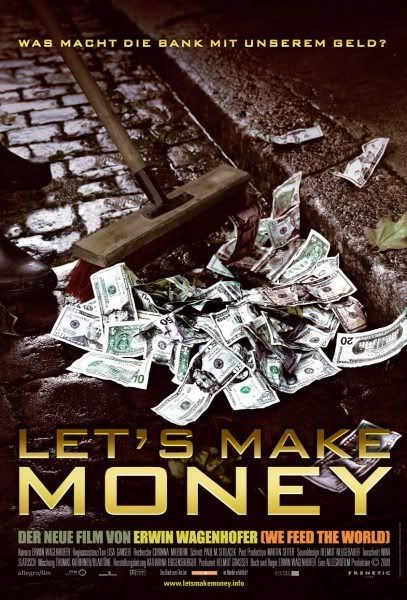Earn money using social networking
1:54 AM
Posted by naila

Erwin Wagenhofer's Let's Make Money (Austria, 2008) follows on the heels of his previous We Feed the World (Austria, 2005), a similar statement on how and under what circumstances comes the food to our plates. This time, in Let's Make Money, Wagenhofer hits even harder at the exploitation of Third World countries, at the global money market that corrupts the world monetary system, and at the crass side of neoliberalism that endorses political manipulation of free trade and free markets by transferring control of the economy from governments to private investors.
We see the fertile cotton fields of Burkino Faso turned into dusty deserts from misuse of crop rotation and sheer abuse of the land. A huge billboard over an Indian slum proclaims a dubious message to "join the millionaires club today." Housing complexes are built in Spain on picturesque cliff-sides with watered golf courses, although these apartments will never be used, while other communities in Spain are in dire need of water. An investment banker maintains his office in Singapore, where the rent is not only cheaper but international oversight is at a minimum. Thanks to deregulation, the tax haven in Jersey protects investment bankers, hedge-fund directors and private equity managers, while millions hunger in Asia, Africa and South America because they have no access to the natural goods at their doorstep.
An eminent tax expert explains why Swiss banks support "making money" over humanitarian principles, which could eventually lead to global environmental catastrophes. We see how the gold bricks arrive in Switzerland from mines in distant lands. Worse of all from a political standpoint, an internationally employed world-bank agent details how weak government leaders in the Third World are bribed, threatened and arbitrarily eliminated by "jackals" commissioned in assassination coups. Seen from this angle, these "hit-men" are synonymous with "economy killers," particularly when World Bank "development loans" drive poor countries deep into debt and thus make them vulnerable to political blackmailing.

Post a Comment